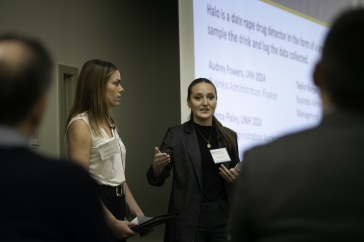
Michael Swack describes himself as “the son of an activist mom who grew up in Northeast Ohio.” He traces his own activist roots to his undergraduate years at the University of Wisconsin, where, as a resident of cooperative housing when his building was put up for sale, Swack devised a scheme to buy the building, only to be told by his attorney that he was likely committing securities fraud.?
The experience led him to pursue graduate work in finance, followed by a career?creating programs and financial instruments to enable low- and medium-income families to find housing and improve their quality of life. Swack’s?particular contributions?would focus on how community development financial institutions can improve operations, fundraising, and capitalization outside of mainstream banking.?
Swack’s career has gathered a burnish of legend about it. After contributing to a book on community land trusts in 1982, for example, he and co-author John Davis got a call from the newly elected mayor of Burlington, Vermont, Bernie Sanders. Sanders was interested in public land trusts, the authors met with him, and today Burlington boasts the nation’s largest and most successful community land trust.??
Or, take the time in 1983?when Swack was introduced to a couple of “scruffy looking” friends who had a great business idea but no business plan. Swack volunteered to develop and write a plan for Gary Hirschberg and Samuel Kaymen —?who later named their company Stonyfield Farm Yogurt.?
Julie?Eades, the president of the New Hampshire Community Loan Fund, which Swack created in 1983 when his graduate students at UNH couldn’t get financing for the community development projects they were helping with, described?Swack’s?trademark as “the ability to balance a practitioner’s mentality and an academic’s objectivity.”?
Eades?might have added “and a mentor’s love of inspiring others.” Over a 39-year?tenure in higher education (12 of those with?Paul College and?the Carsey School), Swack figures?he’s?taught some 1,000 students.?At Paul, Swack currently teaches courses in Microfinance and Social Economy. He will soon launch a new experiential learning-based course on community finance within the college's Business in Practice?Program.?
“I enjoy teaching both undergraduate and graduate students,” he said. "Many end up working in a similar field. I am still in touch with students I taught when I first started over 30 years ago.”?
On October 22, 2019, Swack received the 2019 Net Gramlich Lifetime Achievement Award for Responsible Finance. The Award is the highest individual honor available in the field of community development, a field that Swack helped define. And he?shows no sign of slowing down – at present, his many projects include collaborating with a?national?association of credit unions to put together a training program and financing platform that will allow the credit unions to underwrite solar lending for their members, many of whom would otherwise lack the resources to invest in clean energy.?
-
Written By:
Dave Moore | UNH Cooperative Extension




















































